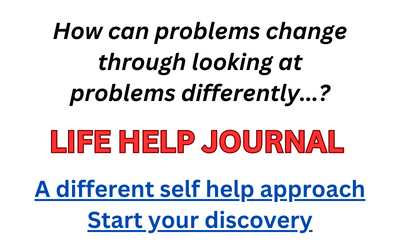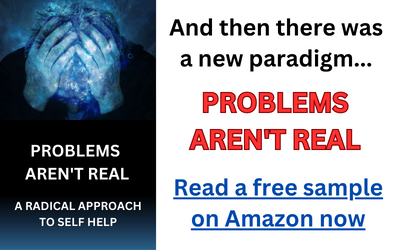The question of how to treat depression and / or anxiety (with or without medication) presumes that one or both of these conditions needs to be treated. Many if not most people with depression and / or anxiety would reply that these conditions do need to be treated, of course. To not treat them would mean suffering.
I’ll ask this question in reply: Should we try to avoid suffering? Is avoidance the best method, really, for dealing with suffering?
I believe depression and anxiety both, as well as other chronic emotional maladies, are at least partially the result of avoidance. If we stopped trying to avoid suffering then depression and anxiety would each be short lived experiences, and not chronic conditions.
Let me explain…
Let’s say that there are two parts to depression and anxiety. The first part is a thought stream, or a story as I sometimes refer to it, that comes into our conscious awareness. This story says, essentially, that something is wrong. At some level we hear this thought stream, and we accept the story that it’s telling as truth. When we accept this truth, that something really is wrong, there is a physical reaction within the body that we refer to as emotion. We describe this emotion as depression, anxiety, or whatever else.
This is the end of the first part of depression and / or anxiety.
The second part of depression and / or anxiety is a story about the emotion we’re feeling. The story says, essentially, it is bad that we feel depression and / or anxiety. I am depressed! I am anxious! This shouldn’t be!
This emotional response to our initial emotional response is, in effect, what turns depression and / or anxiety into something chronic. We become convinced that depression and / or anxiety is something that shouldn’t be, that should be avoided, and we become immersed in the depression / anxiety experiences as a result.
We feel we have to do something with depression and anxiety, and in the process end up taking ownership of them.
What if we did absolutely nothing with the depression and anxiety we experience? What if we took note of them but beyond that simply allowed them to be?
In fact we do not have to do anything with depression or anxiety, or any other emotional response. Leaving emotional responses alone is, in reality, the best response to them. Why? When we leave emotional responses alone, when we acknowledge their presence but otherwise allow them to be, they are free to move on — which they typically do quickly. When we grab hold of emotions and attempt to do something with them they cannot move on.
They become stuck with us, and us with them.
All of this speaks to something larger, I believe, which is our typical response to the life experience. Most people consider life as something to be moved in some way or another. We have to do this or that to have a happy existence. And if we didn’t actively do but instead simply allowed — allowed life to move us in one way or another? What would happen then? Can we be sure that we aren’t, in fact, being moved by life as life — not us but life — sees fit?
Do we really have to “do” to be okay? Will life, in fact, do for us and make sure all is well?
Try this out for yourself with depression and anxiety response. Instead of doing something, do nothing. Simply allow and see how the problems of depression and anxiety respond. If they respond favorably consider allowing, or doing nothing, in response to other problems in your life experience.
Get more information about allowing as a means to end suffering Here.

